About Early Years - Diagnosing the sector’s ills
Monday, October 30, 2017
Staff are poorly paid, settings heavily reliant on Government funding are worse off financially, and qualification levels looks to be falling, finds Ceeda’s first About Early Years survey

EMPLOYEES’ FINANCIAL HEALTH
The childcare workforce earns, on average, around half the average hourly wage.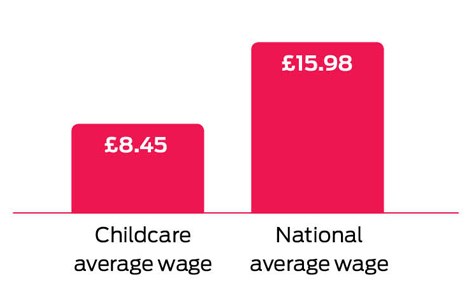
The average sector pay rate was £8.45 per hour in summer 2017, a 9 per cent increase on the rate from Ceeda’s 2014 survey.
DfE data on pay indicates there has actually been a decline – despite the advent of the National Living Wage (introduced in April 2016). In 2013, the DfE Childcare Provider Survey reported average hourly pay rates of £8.40 in full daycare settings. Its 2016 survey, which ran from March to July 2016, reported an average hourly rate of £8.30. Dr Jo Verrill, Ceeda’s managing director, said, however, that data is not presented in the same way across the two DfE reports.
Whichever £8 rate you choose, it is thrown into stark relief by the average UK hourly rate (across all sectors) of £15.98.
Flexibility or casualisation?
A DfE review of childcare delivery costs in 2015 concluded a typical provider could save around 15 per cent by staffing to ratio, and using ‘variable staffing models’.
The data shows the extent to which the early years is a flexible workforce. Part-time work is more prevalent than in the wider labour market, where 74 per cent of all employed staff work full-time. By contrast, just half (49 per cent) of early years staff work 35 hours or more. This is actually an increase on Ceeda’s 2014 figure of 42 per cent.
This has a knock-on effect on pensions. Just 55 per cent of staff are automatically enrolled for a workplace pension because they meet the earnings threshold of £10,000, according to Ceeda. This leaves nearly a third (32 per cent) as non-eligible jobholders on more than the lower earnings threshold (£5,876 per annum) but less than £10,000. For these staff, employers are obliged to pay contributions if the staff member chooses to opt in to a pension scheme. Thirteen per cent of staff don’t qualify for employer contributions because they earn lower than the £5,876 threshold.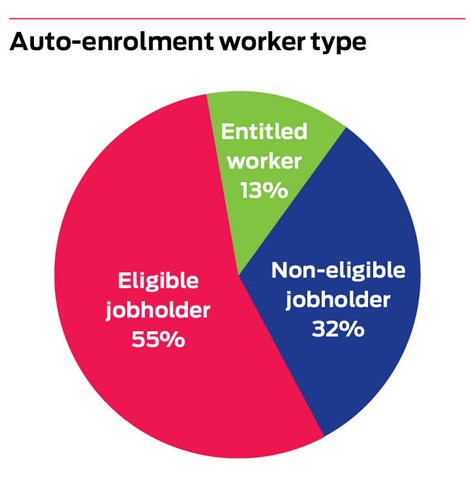
Dr Verrill said this reflected the sector’s ‘in-built flexibility’ to respond to changing occupancy levels. She added, ‘For many people, part-time working and casual contracts are a matter of choice. This flexibility works well for employers by enabling a closer fit between staffing levels and peaks and troughs in demand, as well as reducing costs.
‘When the balance is tipped too far, flexibility becomes workforce casualisation. Part-time and casual employment contracts have long been associated with lower rates of pay, reduced access to training, barriers to career progression and high labour turnover. In a sector which already has high levels of part-time working, calls for greater flexibility to reduce costs made by the DfE in its 2015 review run the risk of lowering quality – and exacerbating entrenched staff recruitment and retention problems.’
Ceeda estimates that 63 per cent of the PVI workforce on permanent or fixed-term contracts are making payments and eligible for a 1 per cent pension contribution from their employer.
This compares with the 67 per cent of the national workforce in England who are in a workplace pension.
Training
The Ceeda data shows little financial incentive for individuals to pursue graduate-level qualifications.
Average hourly pay for early years staff qualified to Level 6 or above was £10.68 (including those in London). Yet a newly qualified teacher on ‘spine M1’ of statutory teachers’ pay and conditions for maintained schools earned an hourly rate of £17.76 outside of London in the 2016-17 academic year.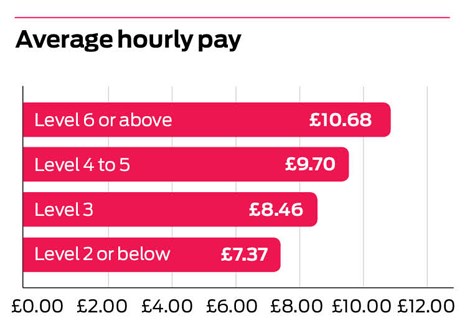
On average, early years staff qualified to Level 3 earn 15 per cent more than staff qualified to Level 2 or below.
‘The sector’s most valuable asset is its experienced, passionate workforce,’ said Neil Leitch, chief executive of the Pre-school Learning Alliance. ‘But as the research makes clear, sector pay rates are still well below the national average. This simply cannot change without an increase in funding rates – and yet the implementation of the 30 hours policy, alongside the fact that current funding levels will be frozen until 2020, means that things are only going  to get more difficult for the sector if the Government doesn’t act soon.’
to get more difficult for the sector if the Government doesn’t act soon.’
On the upside, the number of men in childcare has increased, albeit from a low base. Men now account for 5 per cent of the PVI workforce, according to the data. DfE data from 2013 indicated male childcare practitioners made up 2 per cent of the workforce.
SETTINGS’ FINANCIAL HEALTH AND IMPACT ON STAFFING
Funding and profits
A quarter of settings said they made a loss. This compares with 17 per cent who told an NDNA survey last year the same. Ceeda found that less than one in two settings reported a profit (46 per cent) and 18 per cent broke even.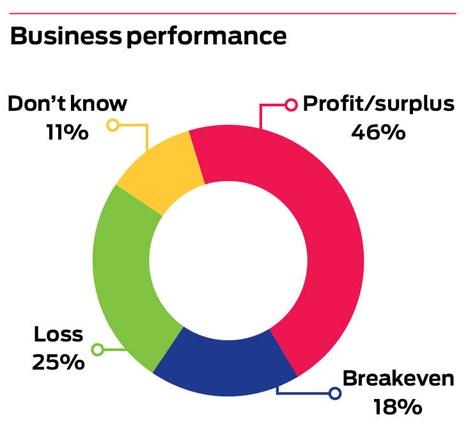
Over half, 52 per cent, of occupied hours in an average setting were Government-funded.
Funded provision accounted for more than three-quarters of all occupied hours in 30 per cent of settings. These settings were least likely to report a profit (33 per cent compared with the sector average of 46 per cent).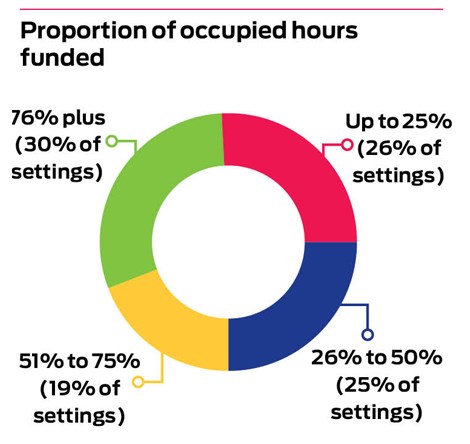
Stella Ziolkowski, NDNA’s director of quality and workforce development, said, ‘This is a direct and unequivocal link between settings making a loss and those taking the highest percentage of funded places. Government-funded childcare is the main cause of a crisis in the sector, along with rising costs.’
Business confidence
Confidence in future financial performance is lower in England’s PVI early years sector than for all UK-wide businesses. Over one in three settings (37 per cent) said they were less confident about their financial prospects than they were last year; the UK figure was 26 per cent.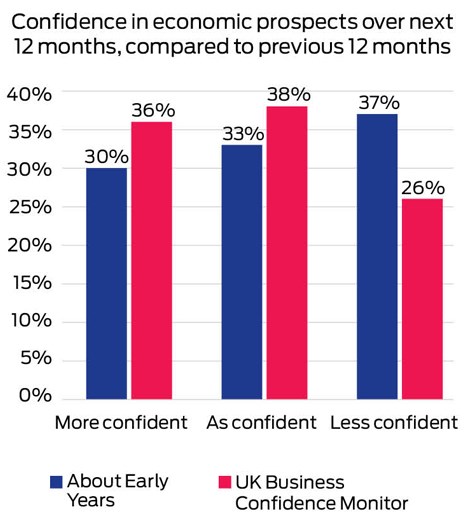
Vacancies
There are 24,600 unfilled vacancies in PVI settings. More than half of these (12,580 posts) are for staff with Level 3 qualifications. A further 4,180 vacancies are for apprentices.
Overall, 84 per cent of settings with jobs to fill say finding staff is tough.
More than a quarter of employers (27 per cent) also felt that there was a general lack of interest in childcare as a career.
Qualifcation levels
Indications are that qualifications levels are falling. Now, 71 per cent of staff hold a Level 3 qualification or above. This marks a drop on previous years, with 79 per cent the level in the 2016 DfE childcare provider survey, and 87 per cent of daycare staff in the 2013 DfE provider survey. Recent research by the NDNA also shows a downward trend, from 83 per cent in 2015 to 75 per cent in 2016.
Dr Verrill said, ‘All surveys have a margin of error which is important to consider when looking at trends. That said, there is sufficient evidence here to indicate that qualification levels are generally on the decline after a period of growth.’
Sector bodies were quick to link this to an absence of funding. Ms Ziolkowski said, ‘Nursery employers are in a catch 22 situation: they are concerned about a drop in qualifications but can’t afford to train staff or replace them when they move on if they are in the red.
‘The result of trying to get more parents into work with inadequate funding for places could ironically mean a drop in the general workforce as nurseries close and fewer places exist for children of working parents.’
Access the full report here:
https://www.aboutearlyyears.co.uk/media/1091/ceeda-aey-summer-2017-snapshot_issue-1.pdf
ABOUT EARLY YEARS
About Early Years was launched in May 2017 by Ceeda to provide large-scale, robust insight into the sector. Sponsors include Pre-school Learning Alliance and LEYF. Nursery World is media partner. Survey data based on returns from 366 PVI nurseries and pre-schools, weighted and grossed to reflect the population of settings on Ofsted’s Early Years Register.








